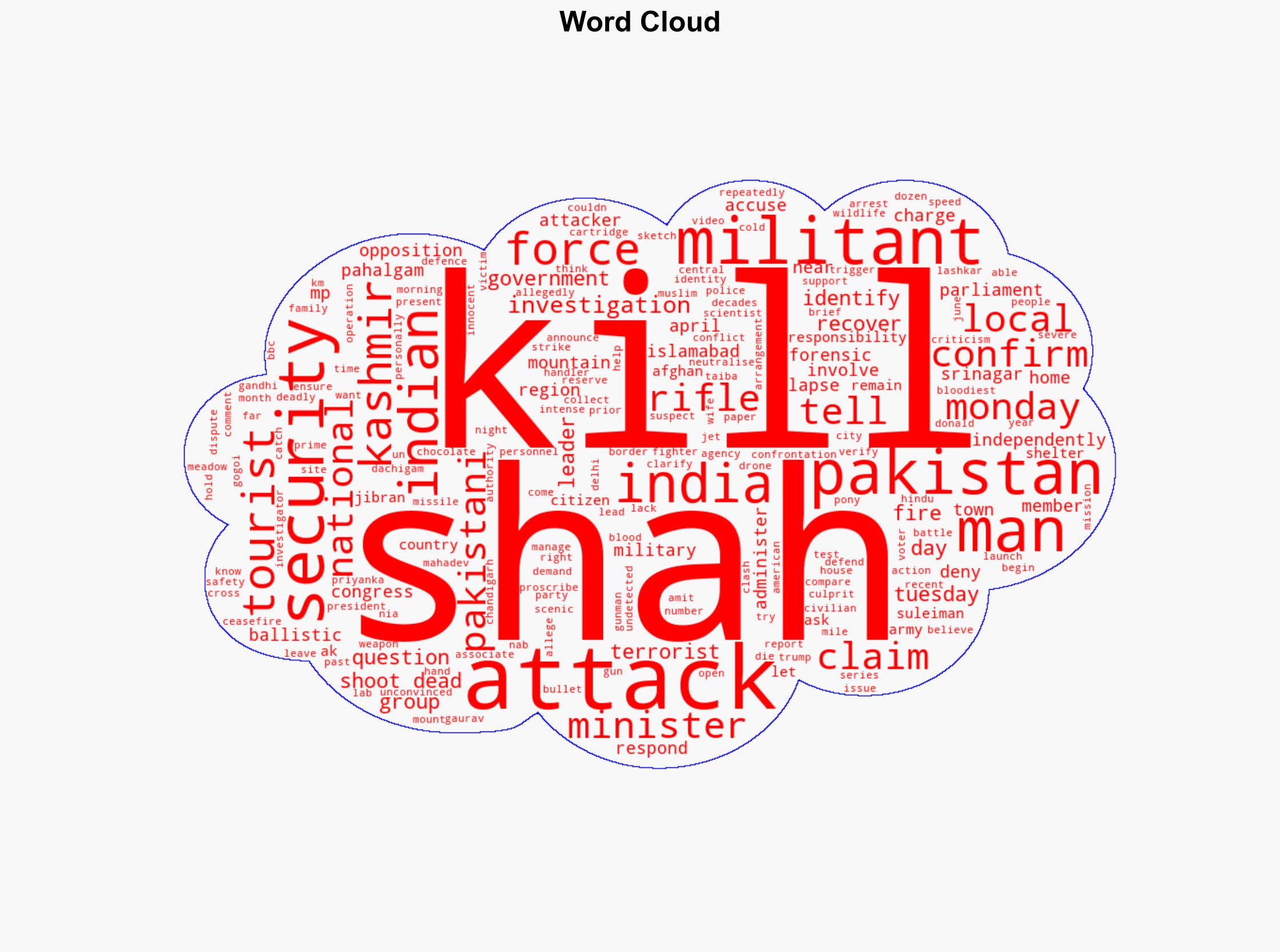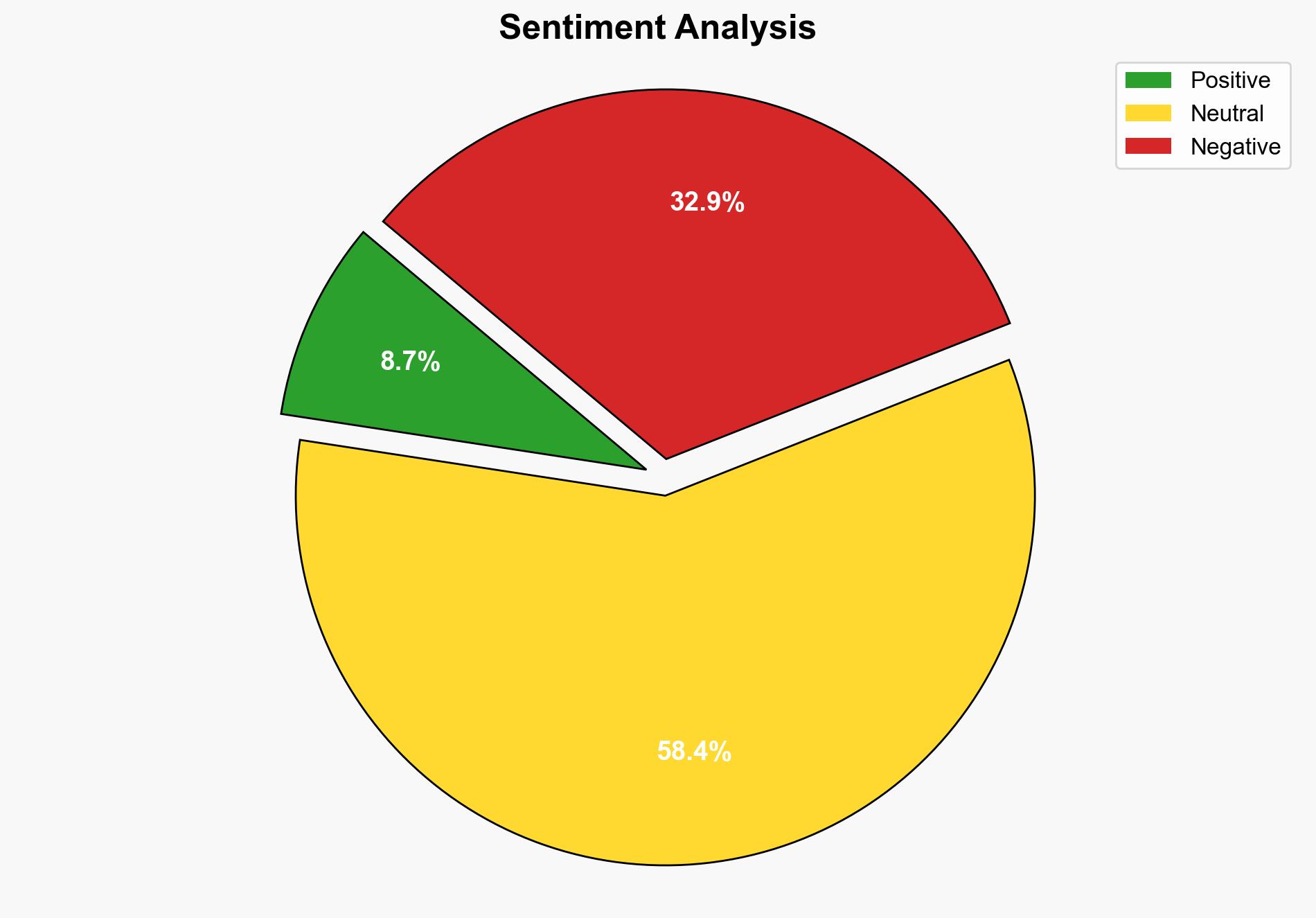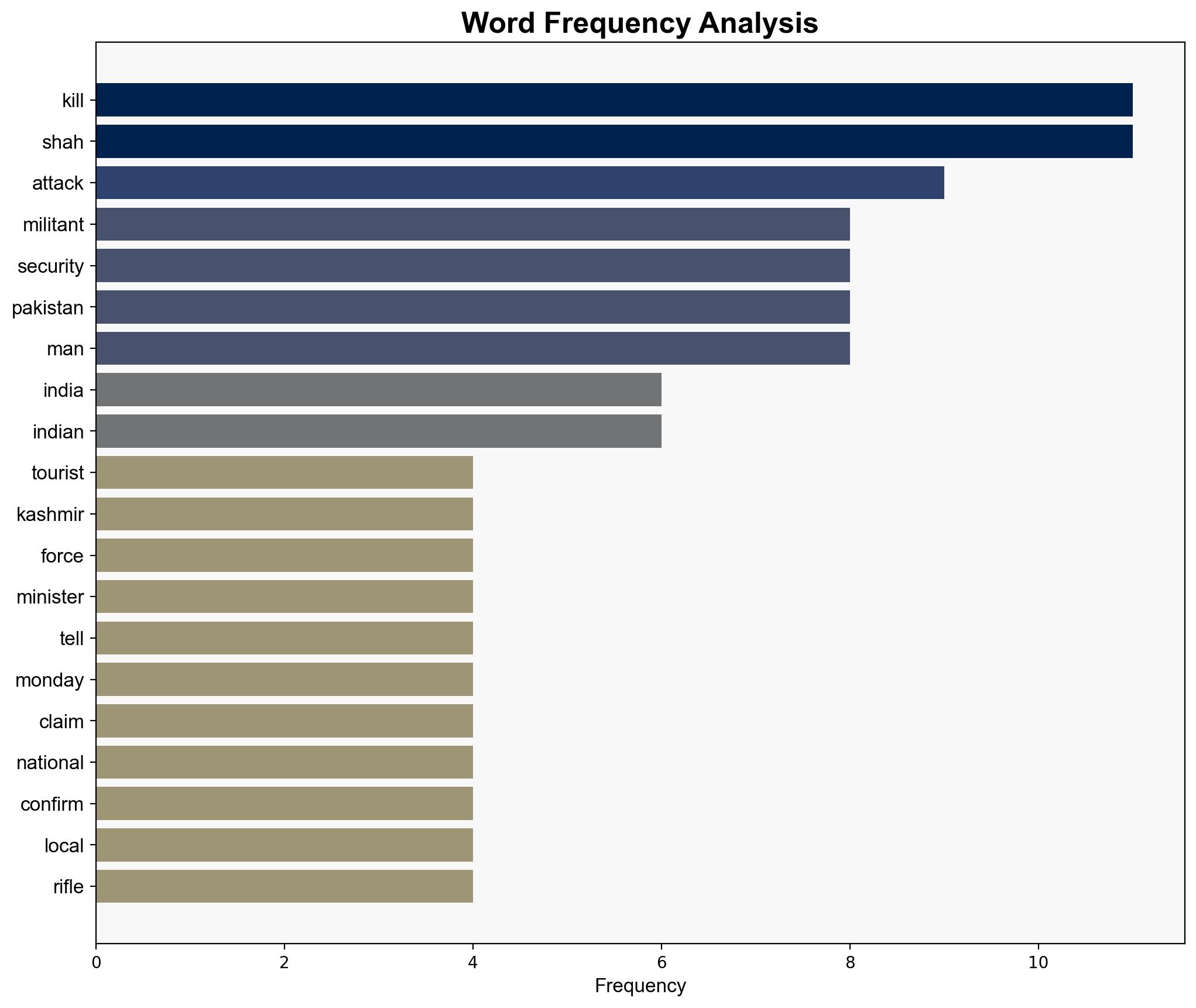India says it killed militants who shot dead tourists in Kashmir – BBC News
Published on: 2025-07-29
Intelligence Report: India says it killed militants who shot dead tourists in Kashmir – BBC News
1. BLUF (Bottom Line Up Front)
The most supported hypothesis is that the militants involved in the attack on tourists in Kashmir were indeed linked to Pakistan-based groups, as claimed by Indian authorities. This conclusion is based on the forensic evidence and the historical context of similar incidents. Confidence level is moderate due to the lack of independent verification. Recommended action includes enhancing cross-border intelligence sharing and diplomatic engagement to reduce tensions.
2. Competing Hypotheses
1. **Hypothesis A**: The militants responsible for the attack were Pakistani nationals linked to groups like Lashkar-e-Taiba (LeT), as claimed by Indian authorities. This is supported by forensic evidence and historical patterns of cross-border militancy.
2. **Hypothesis B**: The attack was carried out by local militants or non-state actors unrelated to Pakistani groups, possibly to incite further conflict and destabilize the region. This is suggested by the lack of independent confirmation of the attackers’ identities and potential local grievances.
3. Key Assumptions and Red Flags
– **Assumptions**: Hypothesis A assumes the accuracy of Indian forensic and intelligence reports. Hypothesis B assumes the possibility of local actors being capable of such attacks without external support.
– **Red Flags**: The lack of independent verification of the attackers’ identities and the potential bias in attributing blame to Pakistan without conclusive evidence.
– **Blind Spots**: The potential for internal political motivations influencing the narrative and the absence of detailed information on the attackers’ backgrounds.
4. Implications and Strategic Risks
– **Escalation Risks**: Continued accusations and military responses could lead to heightened tensions between India and Pakistan, risking further military confrontations.
– **Geopolitical Impact**: The incident could strain diplomatic relations and impact regional stability, affecting trade and security cooperation.
– **Psychological Impact**: The attack may increase fear and mistrust among local populations, potentially leading to communal tensions.
5. Recommendations and Outlook
- Enhance intelligence sharing with international partners to verify claims and prevent misinformation.
- Engage in diplomatic dialogue with Pakistan to address cross-border militancy concerns and reduce the risk of escalation.
- Scenario Projections:
- Best Case: Successful diplomatic engagement leads to reduced tensions and improved security cooperation.
- Worst Case: Escalation of military conflict resulting in significant casualties and regional instability.
- Most Likely: Continued low-level skirmishes and diplomatic standoffs without major escalation.
6. Key Individuals and Entities
– Amit Shah
– Suleiman Shah
– Jibran
– Lashkar-e-Taiba (LeT)
7. Thematic Tags
national security threats, counter-terrorism, regional focus





